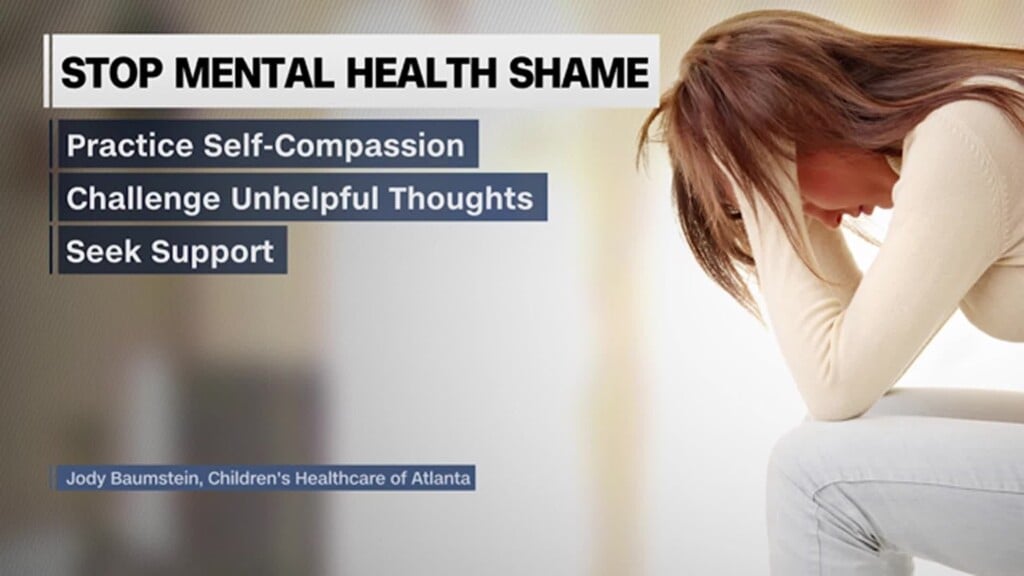Six ways to stop mental health shame during Mental Health Awareness Month
Expert advice on overcoming stigma and prioritizing mental health for overall well-being.

ATLANTA, Georgia (CNN) — More than one in five U.S. adults live with a mental illness, yet only about half of them receive treatment. This discrepancy is often due to factors such as a lack of awareness, limited access to care, financial barriers, or, most notably, the stigma surrounding mental health.
Why people avoid seeking help for mental health struggles
Licensed therapist Jody Baumstein of Children’s Healthcare of Atlanta emphasizes that the shame tied to mental health struggles can be isolating and harmful. “We somehow think we should be doing it better, or we shouldn’t experience certain things,” she says. This feeling of shame can spiral out of control, but Baumstein believes it’s crucial to tackle it head-on.
Six ways to combat mental health shame
-
Practice self-compassion
Treat yourself with the same kindness and understanding you would offer to someone you love. Speaking to yourself with compassion helps reduce feelings of shame. -
Challenge unhelpful thoughts
When negative or shameful thoughts arise, recognize them as unhelpful and consciously reframe your thinking. This shift can break the cycle of shame. -
Seek support
Talking openly about mental health helps reduce the stigma. Baumstein suggests connecting with others who share similar experiences. “When you connect with people who understand, your brain says, ‘I’m not alone. There’s nothing wrong with me,’” she explains. -
Avoid comparing your journey to others’
Everyone’s mental health journey is unique. Focus on your own experiences and don’t measure them against others. -
Share your story
Sharing your struggles with mental health creates a safe space for others to do the same. It builds a supportive community where people feel understood and less isolated. -
Remember that mental health struggles don’t define you
“It’s something we experience; it’s something we feel,” says Baumstein. Mental health challenges are part of your story, but they don’t define who you are.
Digging deeper: Understanding the roots of mental health shame
Baumstein also advises that it’s important to explore the reasons behind the shame we feel about mental health. By getting to the root cause of these feelings, individuals can better address and manage the intrusive thoughts that may hinder their healing.



